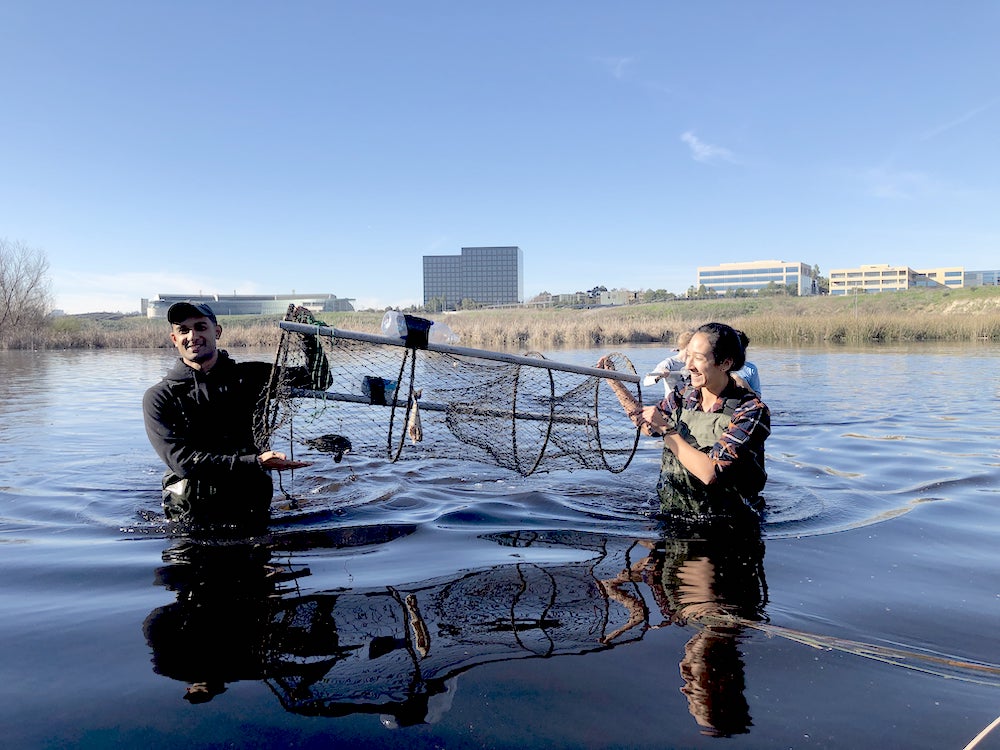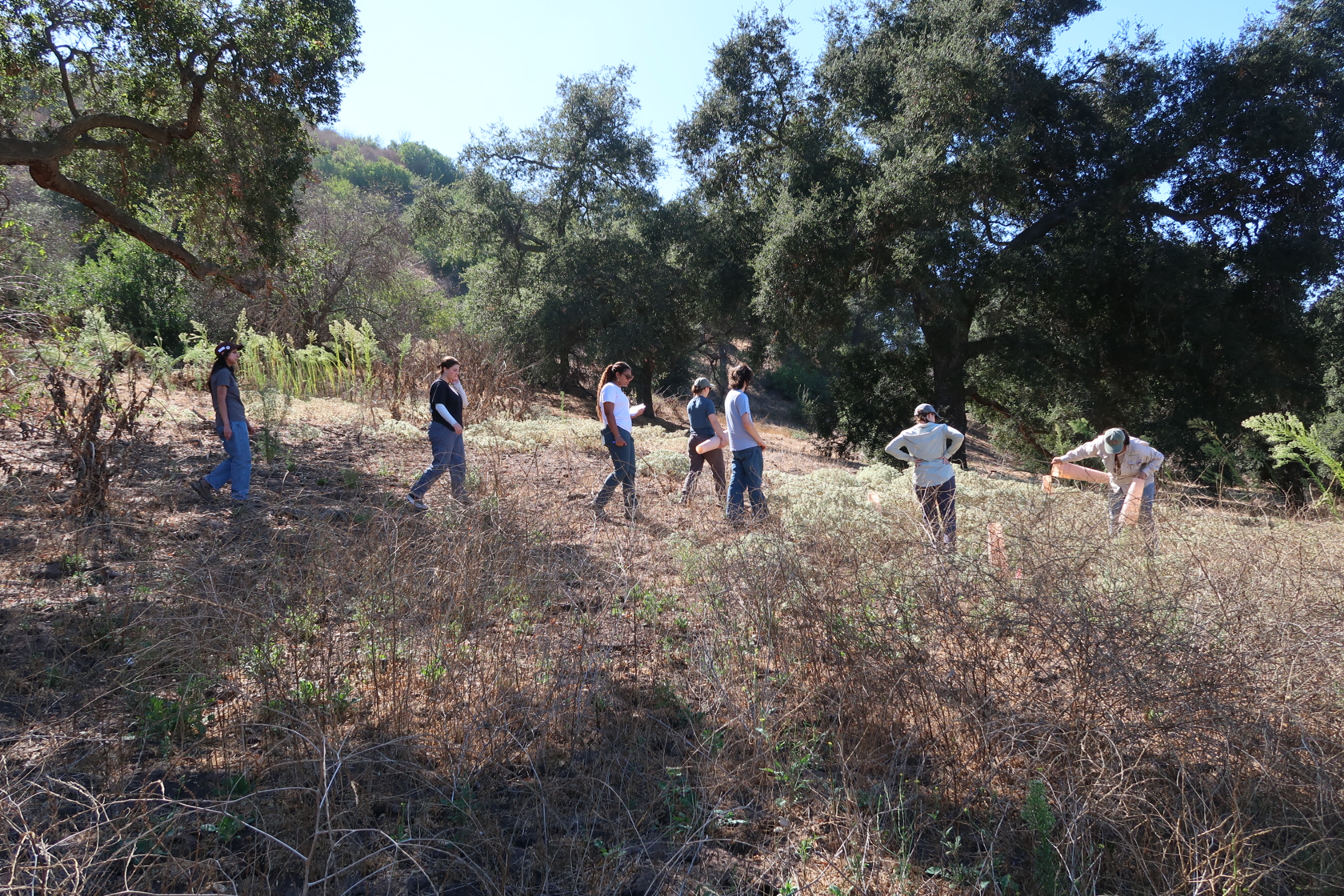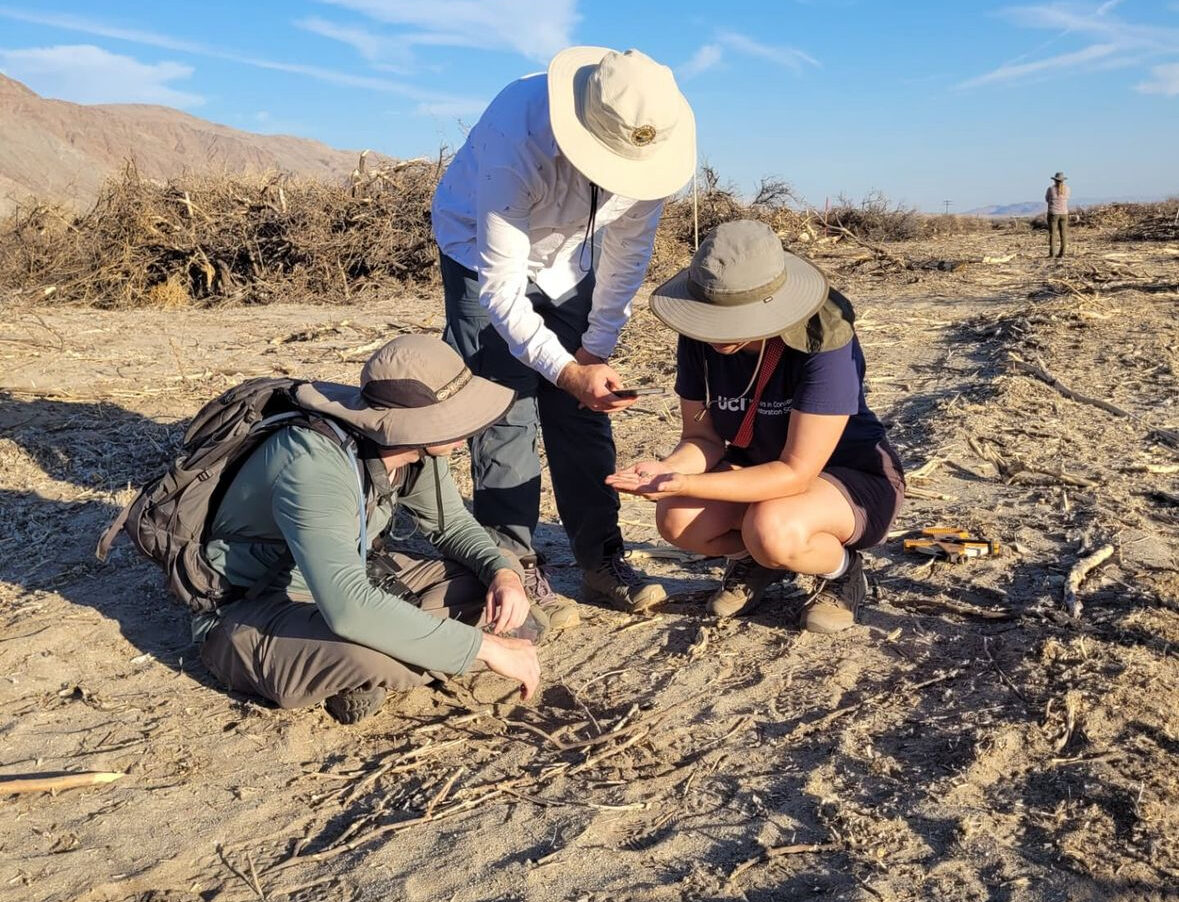Overview
The Masters in Conservation and Restoration (MCRS) program is offered through the Department of Ecology and Evolutionary Biology (EEB) and the Center for Environmental Biology (CEB) within the Charlie Dunlop School of Biological Sciences.
Ecology and evolutionary biology are sciences with increasing relevance to today’s society. Ecology has become a profession; one that actively manages biodiversity, biogeochemistry, and physical landscapes as they interrelate with today’s political, social and economic processes. Employer demand for Conservation and Restoration Science professionals increased by 70% between 2010-2013, and it continues to grow.


Mission
The mission of the MCRS Program is to prepare leaders in the fields of environmental science, conservation, restoration, and sustainability by engaging them in active adaptive management experiences.
Active adaptive management refers to the process of managing natural resources by (1) collaboratively developing a model for how the system works; (2) developing trials with replication and controls to experimentally evaluate multiple management actions; and (3) modifying future management activities based on results. The idea of active adaptive management provides a coherent link between coursework, fieldwork, and the capstone project.
Program Structure
- Year One:
- A sequence of core, professional development, and field experiences designed to prepare students for their capstone project
- Year Two:
- A year of elective courses designed to allow students to address their individual interests in the field
- A team-based capstone project designed to provide real-world experience in preparation of a career

